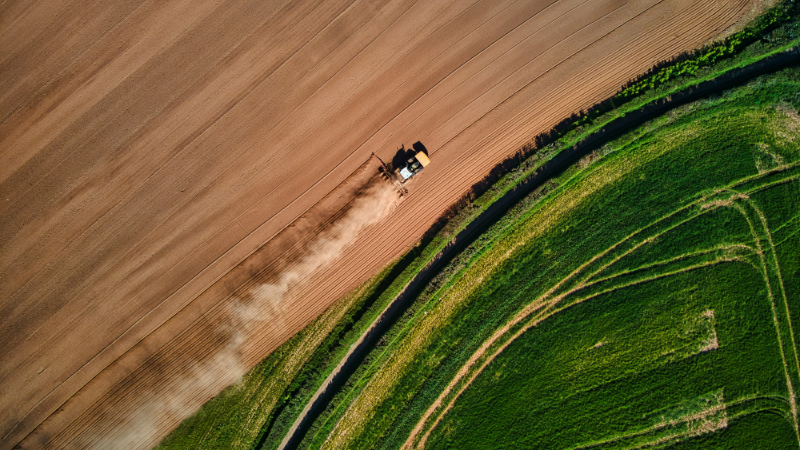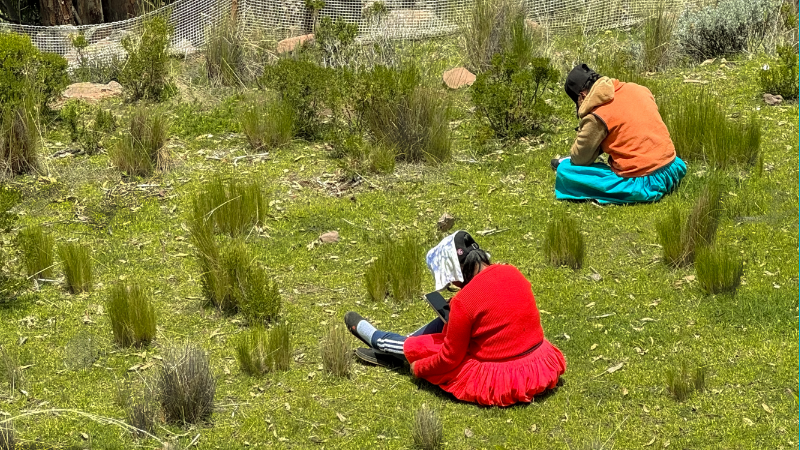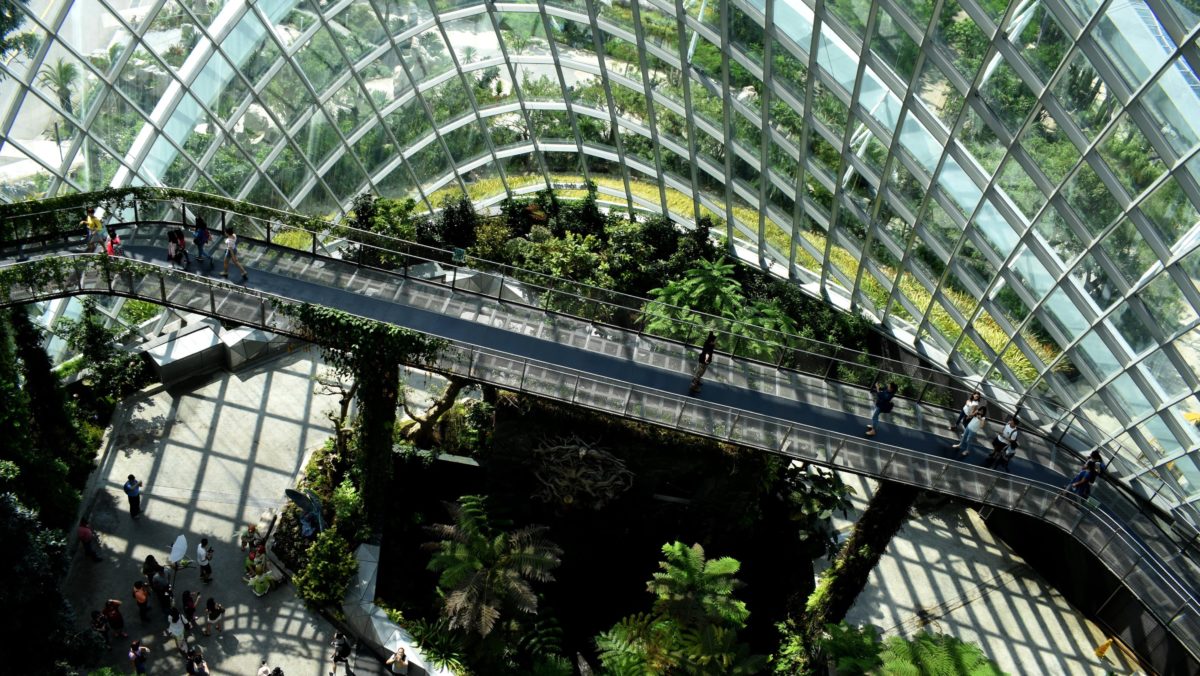
Research in Focus
Digitalisation and sustainability
When it comes to sustainability, digitalisation opens up great opportunities and poses myriad challenges. It is important that societies, organisations and individuals begin to grasp the sustainable potential of digital technologies, because, currently, their negative effects often outweigh the positive ones due to enormous requirements for material and energy, but also due to discrimination against certain social groups. In our research at HIIG, we investigate how digital and sustainable transformation can be shaped together. How can technology be introduced and used in a responsible manner from a social, economic and ecological perspective?
The term sustainability is an (ideal) state and has been a guiding principle for economic, political, and ecological actions for many years. This is also referred to as the sustainable development of our society, where the needs of our present are met in such a way that the possibilities of future generations are not limited. The aim is to act with a forward-looking perspective, consider long-term effects, and preserve the basic living conditions of people. This applies from the sustainable use of the natural resources of our Earth (environment), to peaceful and equal coexistence (people), up to companies that assume social and ecological responsibility (economy).
Combining Sustainability with Digitalisation
Digitalisation offers both opportunities and risks for sustainable development. For example, the introduction, expansion, and limitation of technologies often have social and ecological consequences. Whether they are sustainable or not depends on the specific conditions under which they are produced, used, and eventually disposed of. Moreover, digital technologies can be used to demand and promote sustainability in our society: for instance, through more efficient resource utilization, and global communication and coordination. Therefore, it's essential to think about digitalisation and sustainability together.
Digitalisation for the Environment
The production and use of digital technologies are associated with a significant demand for materials and energy. The manufacture of digital devices and associated batteries and accumulators, for example, requires the consumption of numerous rare metals. At the same time, digital technologies also offer various opportunities, such as optimizing processes, using resources more efficiently, and measuring and monitoring the health of ecosystems. Furthermore, digital technologies are an indispensable tool for the crucial communication regarding the climate crisis.
LECTURE
Tilman Santarius: Making digitalisation work for the climate!
In our making sense of the digital society lecture series, Tilman Santarius discusses what opportunities and risks digitalisation poses for sustainability.
re:publica 2023
Wie wird Digitalisierung grüner und Klimaschutz digitaler? (German)
In this talk, HIIG researcher Georg von Richthofen explores what digital solutions are available for ecological problems in Indonesia, Vietnam or Mexico.
Digital Salon
Wissen MACHT Klima
In our Digital Salon, we ask how climate-friendly global access to knowledge is and where we come up against geopolitical or economic limits in the exchange.
Between vision and reality: Discourses about Sustainable AI in Germany
This article explores Sustainable AI and Germany's shift from optimism to concern about its environmental impact. Can AI really combat climate change?
One small part of many – AI for environmental protection
What role does AI play in applications for environmental protection? This blog post takes a look at six German projects that use AI for this purpose.
Exploring digitalisation: Indigenous perspectives from Puno, Peru
What are the indigenous perspectives of digitalisation? Quechuas in Peru show openness, challenges, and requirements to grow their digital economies.
Digital technology for rainforest protection in Indonesia: disturbances, revitalisation and resilience
Digital technology and rainforest protection are strongly intertwined, with new tools offering multiple options for monitoring and restoring.
Net-zero growth driven by green tech – A story for all?
The grand vision that green tech will contribute to net-zero emissions and sustainable economic growth is certainly appealing, but is it really a story for all?
Towards a socially just gig economy in Kenya: Stakeholder engagement and regulatory processes
The gig economy in Kenya is growing rapidly but conditions for workers are often precarious. We investigated the livelihoods of gig workers.
Sustainable AI – How environmentally friendly is AI really?
Sustainable AI is becoming increasingly important. But how sustainable are AI models really? And what recommendations can be made? Read about our investigations of small-scale AI projects.
The case of nature: Digital Ecocide by Tech Companies
Digital tech companies and global digitalization trends are adding to the existing pressures on our natural environment on several ways. In fact, all six Sustainable Development Goals (SDGs) that relate...
Artificial and intelligent but also sustainable?
Despite the growing global interest in mitigating climate change and in the digital transformation, there is often still a lack of implementation expertise on how these "instruments" can best be...
Digital Social Innovation: from efficiency to effectiveness in digitalisation
How can technology help organisations to more effectively tackle societal challenges? In this article we introduce the concept of effectiveness in digitalisation, which, we believe, is key to any digitalisation…
Artificial Intelligence and Sustainability
An interview with Martin Wimmer How does effective climate protection work and how can we transform towards more sustainable ways of living and making business? AI technologies are increasingly being discussed…
Social Purpose Organisations and Digitalisation: Towards an Inclusive and Sustainable Transformation
Organisations pursuing social and or environmental goals are different from corporations. Rather than maximising on profits, they pursue multiple social, environmental, and economic goals simultaneously. They marshal local, underused resources…


















